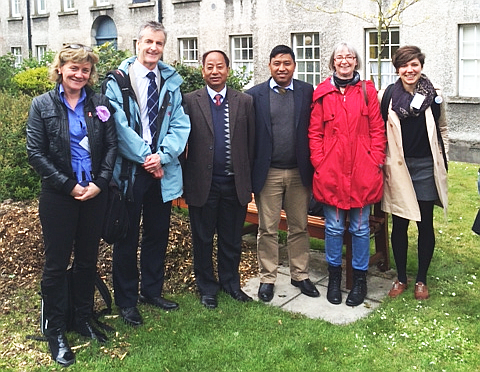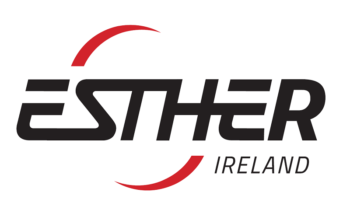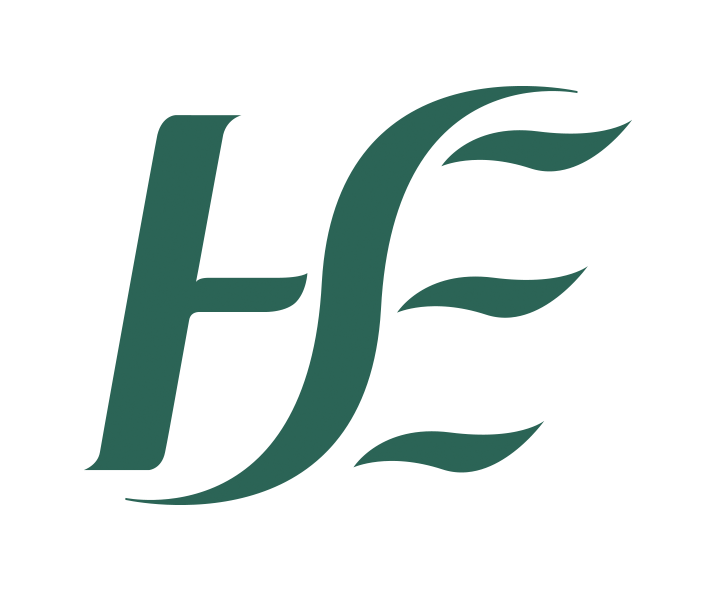In March (2015) Dr. Mai Mannix (Director of Public Health, HSE Mid-West) and Dr. Anne Dee (Specialist in Public Health Medicine, Department of Public Health, HSE Mid-West) visited colleagues and partners at the Lalgadh Leprosy Services Centre (LLSC) in Nepal. You can find more information about Dr. Mannix and Dr. Dee’s visit in our previous Partnerships Panorama. We followed up with the Nepalese partners during a reciprocal visit by LLSC staff to Ireland in May (2015). In this interview, Dr. Krishna Bahadur Tamang (Medical Coordinator, LLSC) and Mr. Dambar Bahadur Aley (Programme Director, LLSC), reflected on their experiences of the partnership thus far against the backdrop of a longstanding working relationship and a recently- awarded ESTHER Ireland Start-Up Grant.

The opportunity for partners to participate in exchange visits was seen as beneficial – Mr Aley commented: ‘We are able to come and learn and benefit from our experiences here in Ireland’. Partners can expand their understanding of health systems within diverse contexts, and apply such experiences to improve their own service provision and programme implementation. Both Dr. Tamang and Mr. Aley mentioned how this collaboration has begun to influence their current work and move them to focus more on public health.
Supporting partners to develop a joint vision is an important aspect of ESTHER Ireland activities, and one challenge for partnerships is to ensure that partners understand the dynamics of each uniquely situated health system. By participating in these exchange visits, partners are able to experience first-hand the on-the-ground realities and contexts of each setting. For instance, with a modest annual income, and relatively small operating budget, LLSC and the Nepal Leprosy Trust have learned to be economically effective with the allocation of resources. This is something that Irish partners are clear that they could learn from.
During the visit, a number of meetings were set up with local institutions – the Department of Public Health (Mid-West), University College Cork, and the University of Limerick. Dr. Tamang and Mr. Aley made presentations to the Department of Public Health in which they outlined ongoing projects and current work. They also enjoyed the opportunity to visit a local GP surgery in Limerick.
Dr. Dee has been involved in working with LLSC in an individual capacity for over 20 years, and LLSC has had close links with Ireland through the Nepal Leprosy Trust. The new partnership with the Department of Public Health (Mid-West) is a further development with these links. There are many obvious and subtle advantages to building partnerships and programmes within existing long-term sustainable relationships. ‘We feel like we know Anne very well…knowing each other makes it easier to communicate openly’ said Dr. Tamang. This also allows for sharing and capitalising on resources and information that already exist within the partnership. The value of the partnership joining ESTHER Ireland was also noted: ‘the ESTHER programme means development for us, it means that we have been trusted more’.
The exchange visits have been funded by the ESTHER Ireland Start-Up Grant fund. While together, the partners worked to identify opportunities for future collaboration. They hope to share knowledge and expertise that will benefit leprosy surveillance, public health research and community-wide programme development for greater access to healthy and safe environments – for example seeking to improve basic sanitation and living situations, including poverty and illiteracy reduction. ‘So far the experience of ESTHER is going according to plan…we will continue to build our relationship’, said Dr. Tamang. The visit ended with the signing of a formal partnership agreement between LLSC and Mount Kennett House, Limerick (HSE Mid-West).
Dr. Tamang and Mr. Aley spoke about creating supportive and successful partnerships that would optimise the provision of care for patients and local populations in need. With the ongoing support of the Nepal Leprosy Trust connecting LLSC with local governments, it is anticipated that formalising this international linkage will enhance research and programme implementation to the advantage of the vulnerable populations and affected communities living with leprosy in Nepal.
We see things can only improve from here moving forward… the future is bright.
-Dambar Bahadur Aley
The interview was conducted, and subsequent article written, by Bianca van Bavel, Professional Editorial Intern with the Irish Forum for Global Health. If you would like to know more about the partnership between Lalgadh Leprosy Services Centre and the Department of Public Health, HSE Midwest, or to contact any of the staff involved, please see www.ESTHER.ie

